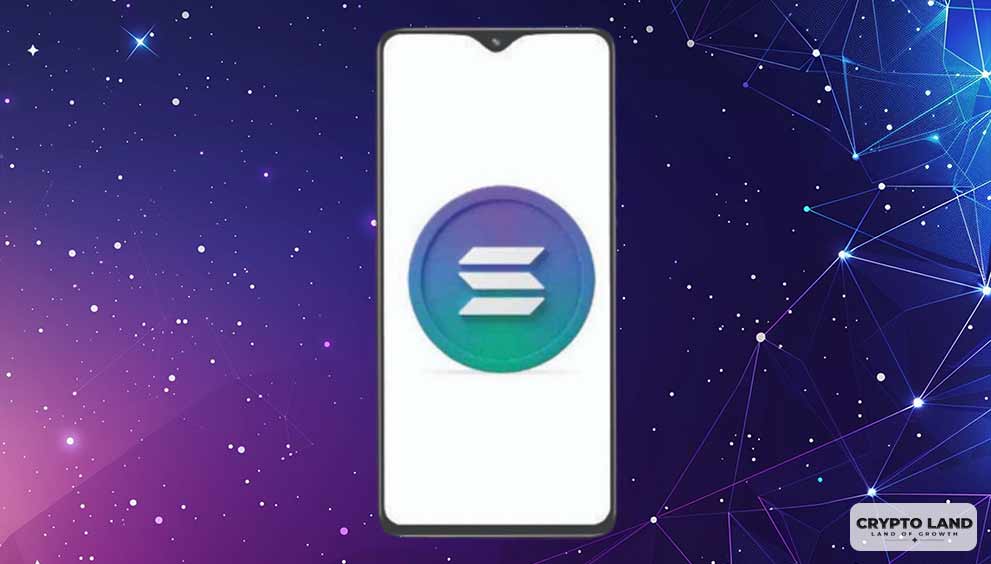How Does Cold Storage Crypto Work?

Cold Wallets use an air-gapped device to store blockchain addresses’ private keys offline when not in use. Cold storage is synonymous with security in the world of crypto.
But what is cold storage, anyway? How does it work? Why should I consider it one of the most secure ways to protect my cryptocurrency?
Let’s explore this essential aspect of crypto security.
What is cold storage?
In simple words, cold storage means you store your cryptocurrency offline, out of the internet’s reach. It does seem somewhat of a relic from the pre-internet world, but in reality, what gives cold storage its beauty lies in the protection it affords assets from online threats. If hackers can’t find it, they can’t hack it, and since cold storage is totally offline, it’s therefore practically immune to cyber-attacks.
Hot Wallets vs. Cold Wallets: What’s the Difference?
So, take this on as an understanding of the difference between “hot” and “cold” wallets. After that, keep reading further on how cold storage works. A “hot” wallet is an internet-connected digital wallet. It’s good for everyday use; perfect for trading, payments, or even sending crypto. However, it has the disadvantage of being weak and more vulnerable to threats online, making it a not-so-safe option for many cryptocurrencies.
On the other hand, cold wallets are offline. They can be hardware wallets, paper wallets, or even physical devices like USB drives. By being offline, cold wallets minimize hackers’ access to your funds and are thus recommended for long-term storage.
How does Cold Storage work?
The principle behind cold storage is very simple but pretty effective
Offline Keys: Because they also create a private key, cryptocurrency stored in a cold wallet is “key-generated” offline, outside of the World Wide Web. This approach means no part of the key creation is exposed to the Internet, and therefore, there is little likelihood that a cybercriminal will intercept a key.
Air Gapped: After generating the private keys, these are usually stored in a separate device that never goes online; such a device may be a hardware wallet (e.g., Ledger or Trezor), a paper wallet-a printed copy of your private keys, and so on, any kind of secure offline storage.
Creating Transfers: To transfer your cryptocurrency from cold storage, you have to create the transaction on some connected internet device, but the signing of the transaction-your private occurs offline. When you sign that transaction, you can then transfer it onto the blockchain. This procedure makes sure your private key never touches an online system either, which reduces risks with exposure.
Offline Storage Means No Online Risk: Since cold storage stores your private keys offline, it’s the only way to get access to your funds by taking control of the storage device. That’s one big reason why people use this kind of storage for large amounts of cryptocurrency they don’t need frequent access to, though. There are, however, two types of cold storage.
Types of Cold Wallet
Cold storage can come in various forms and has its advantages and drawbacks. Below, we shall outline some of the most common forms of hardware wallets:
1. Hardware Wallets
A hardware wallet is a small, physical gadget intended for offline cryptocurrency storage. Hardware wallets are among the most popular types of cold storage because of their portability, user-friendliness, and robust security level. Their built-in security discourages malware, phishing, or even physical tampering through these devices.
How It Works: You can store your private keys on the hardware wallet itself. To initiate a transaction, you need to connect the hardware wallet to an internet-enabled device such as your computer or phone. The wallet signs the transaction without ever exposing the private keys to the internet. Popular wallets: Ledger Nano, Trezor.
Pros
- High security
- Ease of user interface
- Portable
Cons
- Needs physical care (in case the gadget is lost or damaged, you can miss access to your crypto).
- Upfront Purchase Cost
- Hardware and firmware issues
2. Paper Wallet
A paper wallet is an offline mechanism for storing crypto, usually as a printed document containing both your public and private keys. It is a pretty simple concept: you generate a wallet offline, print out the private and public keys, and store the paper somewhere safe—most probably a vault or safe deposit box.
How It Works: Paper wallets can be generated using specialized software or websites. Once created, keys are printed on paper, usually as a QR code so that they can easily be scanned when you need to access your funds. So long as no one can get to the paper wallet, your cryptocurrency is safe.
Advantages:
- There’s no hardware involved, so there’s no chance of hardware failure
- Private keys never get in contact with the internet
Disadvantages:
- Vulnerable to physical damages (water, fire, etc.)
- The crypto is lost and irretrievable if the keys are misplaced
- Not convenient for high-transaction rates
- We have seen them get easily destroyed when they come in contact with moisture
3. Air-Gapped Devices
The final extreme measure among users is air-gapped computers or devices where the crypto is stored off the grid. Air-gapped devices refer to a computer that has never been connected to the internet in any form; thus, there is no risk of a hacker who might try to swipe private keys or some malware trying to get access to your crypto.
How It Works: Users create and sign transactions on an air-gapped computer. When they’re ready to broadcast the transaction, they transfer it from the air-gapped computer to an online computer using external media, such as a USB drive; this will broadcast it to the blockchain. This way, the private key never comes into contact with any online device.
Pros:
- A high degree of security
- Suitable for a participant with large amounts of crypto
Cons:
- Needs to develop some technical knowledge
- Very inconvenient if you make transactions very often
Advantages of Cold Storage
Therefore, the foremost and primary advantage of cold storage is that it offers unmatched security. For these reasons, cold storage is one of the best ways to store your cryptocurrencies.
Hacker Protection: In cold storage, private keys are always kept off the line, and therefore, hackers do not have digital access. Thus, most dangers from the online wallet list, such as phishing, malware, and hacking, are eliminated.
Long-term Storage: Cold storage is ideal for those who want to hold large amounts of cryptocurrency for extended periods without frequent access.
Offline and Safe: Whether you opt for a hardware wallet, paper wallet, or air-gapped device, your private keys remain completely offline and safe from today’s myriad online threats.
Peace of Mind: You understand that your assets are being kept in a safe and secure place, specifically when dealing with large sums of money in cryptocurrency.
Are There Any Downsides?
While it comes with an extra layer of security, cold storage has its frustrations. You risk losing access to your cold storage device if, for example, you lose your hardware wallet, destroy your paper wallet, or forget the recovery phrase. Then, you stand a chance of never recovering any of your funds again.
In addition, cold storage is not really easy for daily transactions. If you frequently trade or transfer cryptocurrencies, it will take you a good amount of time to get funds in and out of cold storage.
Conclusion: Is Cold Storage Right for You?
If you are really concerned about protecting cryptocurrency, cold storage should be your priority. In fact, this type is offline and cannot greatly threaten online attacks. This makes it the first solution for long-term holders or managers of significant digital assets.
However, though, security must be balanced against convenience. Hot wallets are often easier to use for day-to-day transactions. Really, though, the best might be a balance of both: cold storage for the vast bulk of it and keeping only what you need for transactions stored in a hot wallet.






















































































































































































